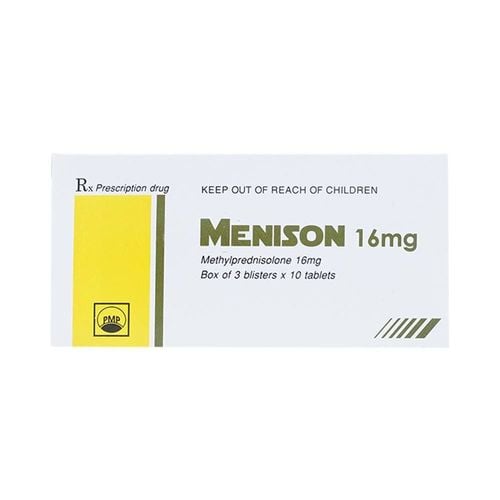This is an automatically translated article.
Until now, medicine still does not know exactly what causes lupus erythematosus. Experts believe that genetics, hormones and environment are factors involved in the etiology of this disease.
1. Is lupus erythematosus hereditary?
The body's immune system protects people from bacteria, viruses and other invaders that can cause illness in the body. But in patients with lupus, their immune systems mistakenly attack and damage their own tissues. Hence it is also known as an autoimmune disease.
A person can be born with a gene that makes them more likely to get lupus. The person may then be exposed to something in the environment and cause the disease.
However, even having the two together does not mean you will have lupus. That's why it's so hard for doctors to find the cause of this disease. Some conditions make a person more likely to get lupus, including:
Genetics Gender Ethnicity Genes are the genetic code that determines the formation, development, and functioning of the body. Gene changes can lead to a number of diseases. Scientists did not find any genes that cause lupus erythematosus. However, people with lupus are more likely to have changes to genes involved in the immune system.

Hiện chưa tìm thấy gen nào gây ra bệnh lupus ban đỏ
Lupus also often runs in families. So, if you have a parent, brother, or sister with lupus, you're more likely to get it than someone in your family who doesn't have it. However, this possibility only accounts for 5 - 13%.
Some ethnic groups have common genes that may make them more susceptible to lupus. The following groups of people are at higher risk, including:
African Americans Asian Hispanic/Latino Native Americans Native Hawaiians Pacific Islanders Researcher Nilamadhab Mishra and colleagues identified 40 genetic biomarkers of lupus. These biomarkers are microRNAs - small chains of ribonucleic acid (RNA) in the cell's command center (nucleus).
MicroRNAs are involved in cell life, growth and death. The researchers compared microRNAs in the blood cells of five lupus patients and seven without the disease. Lupus patients had no other medical conditions and were not receiving prednisone or another medication. Blood samples from study participants were taken twice over three months.

Lupus ban đỏ thường xuất hiện trong gia đình
The study showed that 40 microRNAs were present at higher levels in lupus patients than in those without the disease. This study was published in 2006.
In another study, South San Francisco-based researcher Vesela Gateva and colleagues compared the genetic markers of 1,923 people with lupus and 4,329 healthy people. They found five genes that were associated with an increased risk of systemic lupus erythematosus.
In another study by Jian-Wen Han of Anhui Medical University in Anhui, China compared potential genetic markers for lupus in 1,047 Chinese patients with lupus erythematosus system (SLE) and 1,205 healthy adults in China.
The results of the study showed that 07 genes were previously reported for lupus as well as identified 9 new genes associated with an increased risk of lupus. Two of these genes coincide with five genes found by Gateva's research team. Thus, a total of 12 new potential genetic markers associated with lupus erythematosus have been identified.
Researchers say the presence of these genes along with environmental and lifestyle factors such as sunlight, stress, hormones, cigarette smoke and certain infections all play a role in the disease. lupus erythematosus.

Một số gen kết hợp với các yếu tố khác có thể gây ra bệnh lupus ban đỏ hệ thống
2. Who is at risk for lupus?
People with the following factors have a higher risk of developing lupus erythematosus than others, factors include:
People of African, Asian and Native American descent are at increased risk for lupus erythematosus. red people are higher than white people. Women: Although the disease can occur in both men and women, up to 90% of patients diagnosed with lupus are women. Women of childbearing age (between 14 and 45 years old) are especially vulnerable. This is thought to be related to the hormone estrogen. If someone in the family has lupus erythematosus: if a parent, brother or sister has the disease, the risk of getting the disease will be higher than that of people in the family who do not have the disease. This percentage is between 5 - 13%. These are just factors that increase your risk of getting the disease, not just having them will make you get lupus.
Vinmec International General Hospital with a system of modern facilities, medical equipment and a team of experts and doctors with many years of experience in medical examination and treatment, patients can rest assured to visit. examination and treatment at the Hospital.
Please dial HOTLINE for more information or register for an appointment HERE. Download MyVinmec app to make appointments faster and to manage your bookings easily.
Reference source: webmd.com












